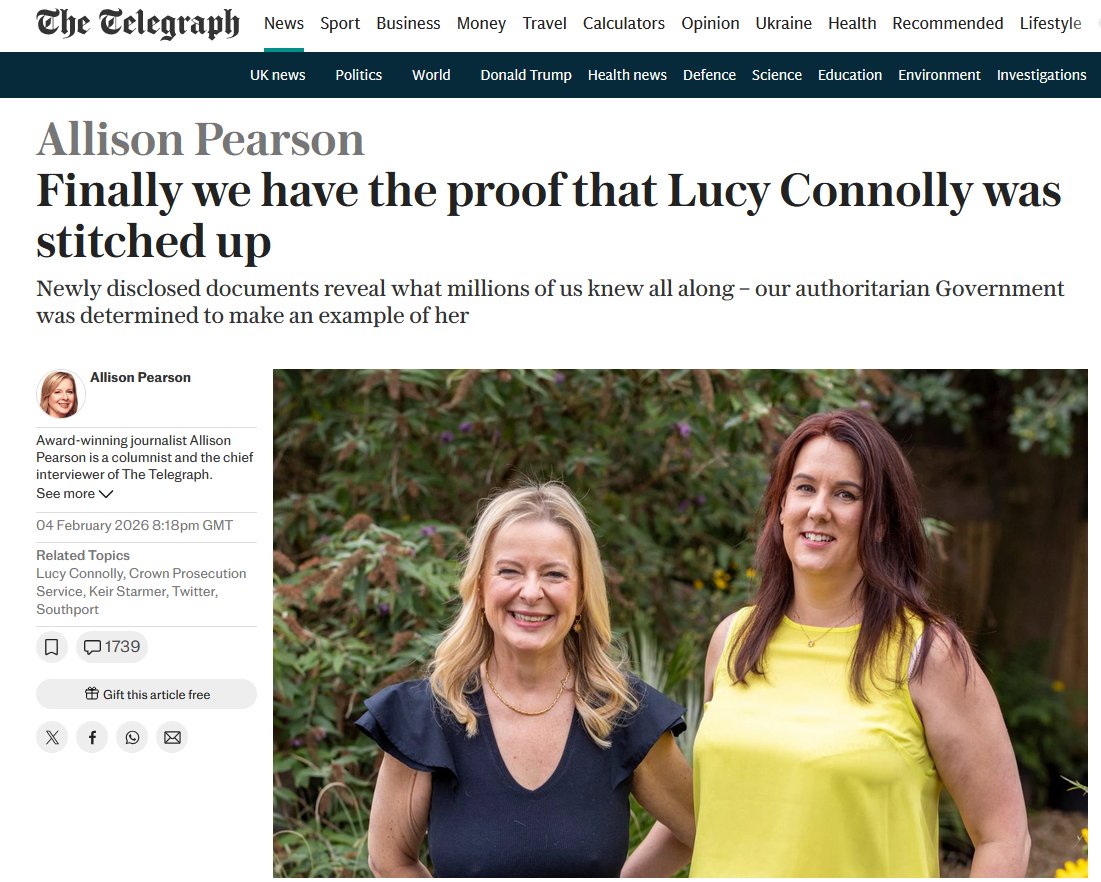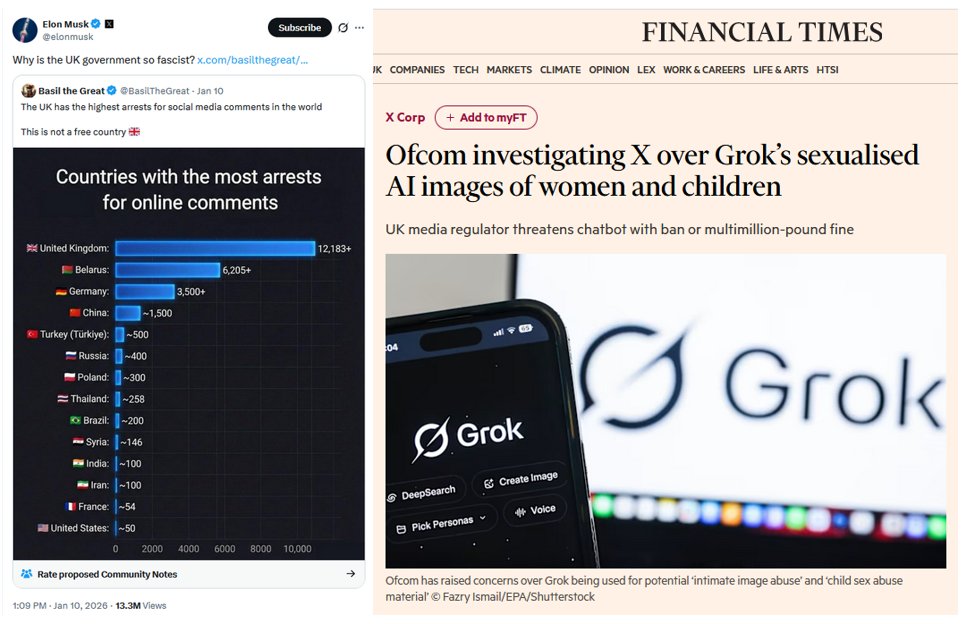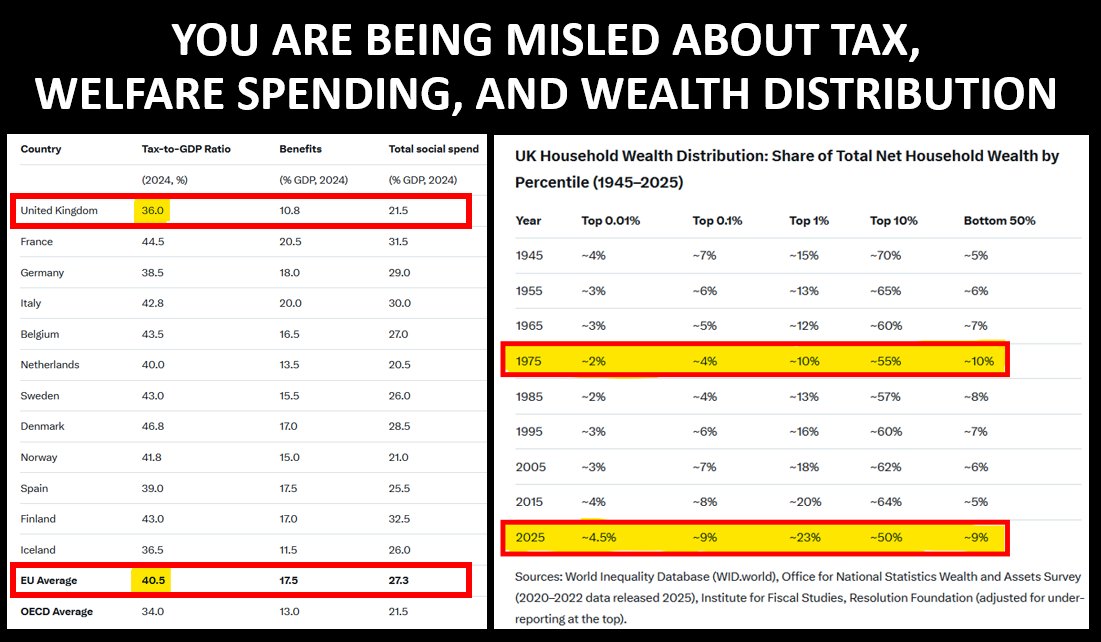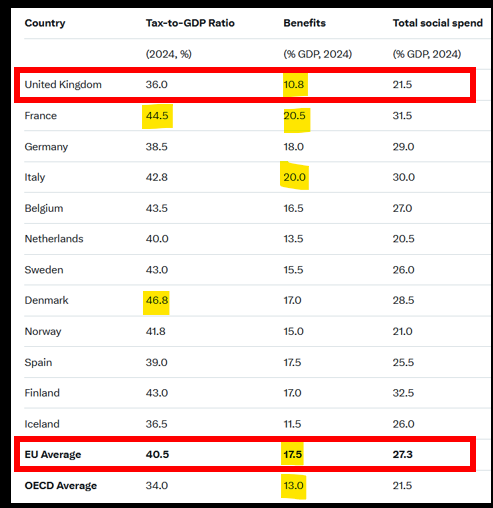#Thread
'One Britain One Nation' & the DoE is calling for children to stand together behind a flag, like Hitler Youth, & sing 'STRONG BRITAIN, GREAT NATION!" 😳
Now call me cynical, but the term "Great Britain" is used to refer to the nation*S* of England, Scotland & Wales. 🧐
'One Britain One Nation' & the DoE is calling for children to stand together behind a flag, like Hitler Youth, & sing 'STRONG BRITAIN, GREAT NATION!" 😳
Now call me cynical, but the term "Great Britain" is used to refer to the nation*S* of England, Scotland & Wales. 🧐

Conflating "Britain" with *ONE* nation is VERY 'one nation conservatism', but chanting "Strong Britain, Great Nation!" is fucking unhinged, & just about as *unBritish* as it's possible to be.
Brave people fought WWII to AVOID this authoritarian populist nationalist bullshit.


Brave people fought WWII to AVOID this authoritarian populist nationalist bullshit.



Btw, no law has ever been passed making the Union Jack (aka the Union Flag) the national flag of the UK: it's become one through precedent.
The Union Flag has no official status, & there are no national regulations concerning its use, or prohibitions against flag desecration. 🤔
The Union Flag has no official status, & there are no national regulations concerning its use, or prohibitions against flag desecration. 🤔

The Chief Exec & founder of 'One Britain One Nation' is ex-Police Inspector Kash Singh.
I endured him being interviewed by Esther McVey on 'Blue Collar Conversations' - the podcast of hard-right pressure group 'Blue Collar Conservatives', founded in 2012 by McVey & Clark Vasey.
I endured him being interviewed by Esther McVey on 'Blue Collar Conversations' - the podcast of hard-right pressure group 'Blue Collar Conservatives', founded in 2012 by McVey & Clark Vasey.

It's Board members are a veritable 'Who's Who?' of some of the most unhinged hard-right culture war cranks in the Tory Party, including Esther McVey, Ben Bradley, Dehenna Davison, Scott Mann, Eddie Hughes, John Stevenson, Lee Rowley, Andrea Jenkyns, Andrew Lewer & Gary Streeter. 





During the interview, Singh claimed it was him who he came up with, & gave to David Cameron, the grotesquely misleading strapline ""We're all in this together", & he went on to make what were, imho, some bizarre & sinister comments about his vision for 'One Britain, One Nation.' 

"Can you imagine everybody standing behind our flag? How good would that look?!" 😳
Seemingly oblivious to the fact that the National Front adopted it as a symbol of racism, he said "The flag of our nation is the symbol of our nation. It stands for pride & unity". 😳
Does it?
Seemingly oblivious to the fact that the National Front adopted it as a symbol of racism, he said "The flag of our nation is the symbol of our nation. It stands for pride & unity". 😳
Does it?

He claimed that despite all its well-documented negative connotations for millions of people here & across the globe, the Union Jack "has no negative connotations attached to it", adding that "each & every one of us has a responsibility to make our country great!" 😳
Do we?
Do we?

#1Britain1Nation's 'Mission' includes the aspiration "to instil a sense of personal pride in all our citizens of being British & create a real sense of collective Identity."
Interestingly, Karl Marx pioneered thinking about 'collective identity' in relation to national identity:
Interestingly, Karl Marx pioneered thinking about 'collective identity' in relation to national identity:

In 2007, a fellow officer brought & lost a race discrimination case, saying he'd been passed over for promotion in favour of Singh.
Singh also founded 'The British Indian Association' - strapline: "Proud to be a British Indian, Proud to be in Britain".
express.co.uk/news/uk/14107/…
Singh also founded 'The British Indian Association' - strapline: "Proud to be a British Indian, Proud to be in Britain".
express.co.uk/news/uk/14107/…

The testimonials for #1britain1nation are quite something: some of the usual suspects are there - Brandon Lawbreaker Lewis & Norman On Yer Bike Tebbit - but also Colin Nicholson, British Wrestling Chief Executive, & Andrew Prodger of 'Powerboat GP', who doesn't have a photo. 🤔 







Which is a bit weird. Turns out there are only a few Andrew Prodgers, & 'Powerboats GP' Andrew Prodger is probably Andrew Prodger of UK-based technology & engineering company, 'STS Defence', "specialising in mission-critical communications, electronics & intelligent systems." 🤔 

I digress.
So what's this all about - apart from the obvious regressive & dangerous populist nationalism that our increasingly unhinged Govt is ramming down British people's throats, supported by GB News & The Spectator, the Telegraph, Sun, Express & Mail, LBC & talkRadio?
So what's this all about - apart from the obvious regressive & dangerous populist nationalism that our increasingly unhinged Govt is ramming down British people's throats, supported by GB News & The Spectator, the Telegraph, Sun, Express & Mail, LBC & talkRadio?
Given #1britain1nation's strong links to 'Blue Conservatism', it seems pretty clear to me that this is the latest turbo-charged episode of post-Brexit 'One-nation conservatism' rhetoric, also known as one-nationism - the paternalistic form of British political conservatism.
The phrase 'one-nation Tory' originated with Benjamin Disraeli, who devised it to appeal to the working-class, who he hoped would see it as a way to improve their lives via factory & health Acts, as well as greater protection for workers. It also helped prevent collective action.
Towards the end of the 19th century, the Conservative Party moved away from paternalism in favour of free-market capitalism. Then in the early 20th century, fears of extremism saw a revival of one-nation conservatism. Very little is new - which is partly why history is important.
Thanks to Iain Macleod, Edward Heath & Enoch Powell, after 1950 one-nation conservatism promised support for the working class elements in the Party coalition. Tories have always worked hard to persuade working class people to support them, despite representing elite interests. 

The 1970s saw the rise of the New Right, espoused by Thatcher. This strand of conservatism rejected one-nation thinking & misleadingly attributed the country's social & economic troubles to the welfare state & Keynesian policies, leading to sustained attack on the welfare state.
David Cameron favoured a one-nation approach - he named Disraeli as his favourite Conservative.
But many commentators questioned the degree to which Cameron & his coalition embodied one-nation conservatism, instead locating them in the intellectual tradition of Thatcherism.
But many commentators questioned the degree to which Cameron & his coalition embodied one-nation conservatism, instead locating them in the intellectual tradition of Thatcherism.
Theresa May referred to herself as a one-nation conservative in her first speech as PM, & outlined her focus on one-nation principles. Boris Johnson has made similar assertions.
But imho, it more closely resembles a rhetorical strategy than a real commitment to helping the poor.
But imho, it more closely resembles a rhetorical strategy than a real commitment to helping the poor.
Disraeli saw society as naturally hierarchical & emphasised the obligations of those at the top to those below - a continuation of the feudal concept of noblesse oblige which asserted the aristocracy had an obligation to be generous & honourable: the opposite to the current Govt. 



To Disraeli, this implied that government should be paternalistic, & he justified his views pragmatically by arguing that should the ruling class become indifferent to the suffering of the people, society would become unstable & social revolution would become a possibility. 🤔 

Anyway, in 1997, Jacob Rees-Mogg's dad, William Rees-Mogg wrote the 'The Sovereign Individual: The Coming Economic Revolution & How to Survive & Prosper', in which he shared his prophetic views on capitalism & chaos that have fascinating links to his son’s enthusiasm for Brexit.
The Sovereign Individual opens with a quote from Tom Stoppard’s play Arcadia: “The future is disorder.”
He wasn't wrong.
The book predicted that digital technology would make the world hugely more competitive, unequal & unstable. Societies would splinter. Taxes would be evaded.
He wasn't wrong.
The book predicted that digital technology would make the world hugely more competitive, unequal & unstable. Societies would splinter. Taxes would be evaded.

Govt would gradually wither away, & welfare states “will simply become unfinanceable”.
In such a harsh world, only the most talented, self-reliant, technologically adept person – “the sovereign individual” – would thrive.
Libertarians across the world embraced this worldview.
In such a harsh world, only the most talented, self-reliant, technologically adept person – “the sovereign individual” – would thrive.
Libertarians across the world embraced this worldview.
Alastair Campbell said “After reading it, it is easy to see” why Jacob “so loves Brexit, & the chaos & disorder, & opportunities for disaster capitalism & super-elitism, that it may provide.”
Today, super-elites fuel a culture war that results in discontent, division & disaster.


Today, super-elites fuel a culture war that results in discontent, division & disaster.



Rees-Mogg Snr emphasised the importance of “low taxation” & “personal independence” – the two sacred causes of the hard-right at the time & since.
With the decline of the welfare state & public services, 'personal independence' now translates to 'personal responsibility'.
With the decline of the welfare state & public services, 'personal independence' now translates to 'personal responsibility'.
In 1992's 'The Great Reckoning: How the World Will Change Before the Year 2000', instead of warning against social & economic turmoil as a threat to conservatism & the well-off, he now saw it as an opportunity for them, & many British & US Libertarians agreed & followed him. 

In 2012, Jacob Rees-Mogg wrote that he was for “the individual against the state”, & against a “society wrapped in cotton wool”.
“The choice” is between “the collective & constant mediocrity”, & “freedom & great peaks of human endeavour”: personal success above all else.
“The choice” is between “the collective & constant mediocrity”, & “freedom & great peaks of human endeavour”: personal success above all else.

In 'The Sovereign Individual', Rees-Mogg Sr recommended Singapore to readers who were entrepreneurs, as one of several countries that “impose low costs” on business.
The book also advised readers to use tax havens.
Today, globally, *at least* $30 TRILLION is hoarded offshore.
The book also advised readers to use tax havens.
Today, globally, *at least* $30 TRILLION is hoarded offshore.

In 2007, Jacob Rees-Mogg co-founded Somerset Capital Management, now a highly profitable London company, investing money for clients in “emerging markets”. The company also operates from Singapore, & has a subsidiary in the Cayman Islands. Both are tax havens. Of course. 

The Sovereign Individual prophesied that in the 21st century, “many of the ablest people” would use “cost-benefit analysis” to assess what was in their best interests. They would “cease to think of themselves as party to a nation”: to the super-rich, nations are merely a vehicle.
This is why the populist nationalism trumpeted every day from the hard-right is so sinister, mendacious, & toxic: they demand nationalism & submission to Queen & country for the masses, while Libertarian elites happily lie to the Queen, line their pockets, & royally fuck Britain. 



Libertarians should be honest for once, & say what they REALLY want, namely: no welfare; no public sector; no taxes; no consumer, worker or environmental protections; no food or other standards; no limit on Party funding; no lobbying restrictions; no unions; & no human rights. 

And here's a #THREAD showing some connections between Tufton St Libertarian think tanks, Boris Johnson's new best friend Viktor Orban, Viktor Orban's little helper Andrew Neil, & populist nationalism:
https://twitter.com/docrussjackson/status/1387338254282895361
Despite 150,000 largely avoidable deaths, the Tories aren't a Party of genocidal maniacs. However, here's a #THREAD outlining numerous uncanny parallels between many of the UK Government's policies & strategies, & those of the Nazi Party of 1930s Germany:
https://twitter.com/docrussjackson/status/1371265857108738048
The UK/US Right practice "Smokescreen trolling” - flooding the zone with (bull)shit & lighting the fuse to every moral panic possible, while obscuring the underlying assaults against pluralistic, multiracial democracy.
How we respond is VERY important.
wired.com/story/far-righ…
How we respond is VERY important.
wired.com/story/far-righ…
• • •
Missing some Tweet in this thread? You can try to
force a refresh












